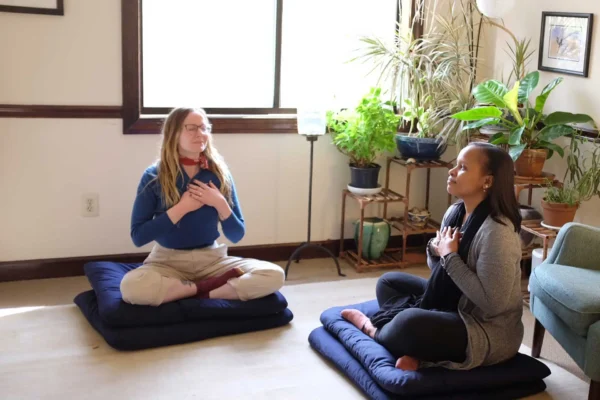
Adolescence is a challenging time marked by rapid emotional, physical, and social changes. For many teens, anxiety can feel overwhelming, affecting their relationships, academic performance, and overall well-being. Dialectical Behaviour Therapy exercises (DBT), initially developed for adults with intense emotional struggles, has proven to be an effective tool for adolescents grappling with anxiety. By equipping teens with practical skills to manage their emotions and navigate life’s challenges, DBT techniques are transforming lives and offering a pathway to resilience.
What is DBT for Adolescents?
DBT for adolescents is a tailored version of Dialectical Behaviour Therapy that focuses on the unique needs of young people. It combines individual therapy, group skills training, and family involvement to address emotional regulation, interpersonal effectiveness, and distress tolerance.
This approach is particularly effective for adolescents because it:
- Recognizes the developmental stage of teens and adapts strategies to their maturity level.
- Involves parents or caregivers in the process, fostering a supportive environment.
- Emphasizes practical, actionable skills that teens can use in their daily lives.
How DBT Helps Reduce Anxiety in Teens
- Mindfulness for Anxiety Management
Mindfulness is a cornerstone of DBT, teaching teens to focus on the present moment without judgment. Adolescents often get caught up in worries about the future or ruminate on past mistakes, fuelling their anxiety. Mindfulness helps them stay grounded, reduce overthinking, and develop a sense of control over their thoughts.
Example: A teen struggling with test anxiety learns to use deep breathing and mindfulness exercises to calm their racing thoughts and focus on the task at hand.
- Emotion Regulation Skills
Many adolescents with anxiety feel overwhelmed by their emotions, leading to avoidance behaviors or emotional outbursts. DBT provides tools to identify, understand, and manage emotions effectively. Teens learn how to label their feelings, reduce emotional vulnerability, and build positive experiences.
Impact: A teen who previously felt paralyzed by social anxiety might use emotion regulation skills to prepare for and confidently attend a school event.
- Distress Tolerance Techniques
Adolescents with anxiety often struggle to cope with distressing situations, leading to avoidance or unhealthy coping mechanisms. DBT’s distress tolerance skills teach teens how to endure uncomfortable emotions and situations without making impulsive decisions.
Real-Life Application: A teen feeling anxious about a conflict with a friend might use distress tolerance strategies, such as self-soothing or distraction, to stay calm and address the issue constructively later.
- Interpersonal Effectiveness
Anxiety can make it difficult for teens to communicate their needs, set boundaries, or handle peer pressure. DBT’s interpersonal effectiveness module equips them with skills to assert themselves, navigate conflicts, and build healthier relationships.
Outcome: A shy teen who avoids group activities might learn to express their preferences and participate without fear of judgment.
- Family Support and Communication
In DBT for adolescents, families play a critical role. Family sessions help parents and caregivers understand their teen’s struggles and learn how to provide effective support. Improved communication within the family often leads to reduced anxiety and a more harmonious home environment.
Why DBT Works for Adolescent Anxiety

- Skill-Based Approach
DBT focuses on actionable skills that teens can practice and apply in real-life situations. This hands-on approach empowers adolescents to take control of their anxiety and see tangible improvements. - Validation and Acceptance
DBT emphasizes the importance of validating a teen’s feelings while encouraging growth. This dual approach helps teens feel understood and supported while motivating them to make positive changes. - Focus on Problem-Solving
Teens with anxiety often feel stuck in their worries. DBT teaches them to break problems into manageable steps, reducing feelings of helplessness and building confidence. - Supportive Environment
Group skills training allows teens to connect with peers facing similar challenges. This sense of community helps reduce feelings of isolation and normalizes their experiences.
Real Stories of Transformation
- Emma, a 14-year-old with severe social anxiety, used DBT to develop mindfulness and emotion regulation skills. Over time, she gained the confidence to speak up in class and join her school’s debate team.
- Liam, a 16-year-old who avoided social situations due to anxiety, learned interpersonal effectiveness techniques in DBT. He now navigates friendships more comfortably and even organized a community service project.
- Sophia, a 15-year-old who frequently experienced panic attacks, found relief through DBT’s distress tolerance skills. She can now manage her anxiety during exams and stressful family situations.
Research-Backed Results
Studies show that DBT is highly effective in reducing anxiety and other emotional challenges in adolescents. Key findings include:
- Significant reductions in anxiety symptoms, self-harming behaviors, and emotional outbursts.
- Improved emotional regulation and interpersonal relationships.
- Increased resilience and coping abilities, leading to better overall mental health.
Conclusion
DBT for adolescents is a life-changing therapy that empowers teens to take control of their anxiety and build emotional resilience. By providing practical skills, fostering family support, and emphasizing mindfulness and acceptance, DBT helps adolescents navigate the challenges of growing up with confidence and clarity. For parents and teens alike, it offers hope, healing, and the tools to create a brighter future.
 Living With Healthy Hunger Health Blog
Living With Healthy Hunger Health Blog

